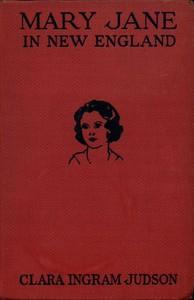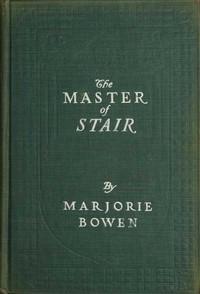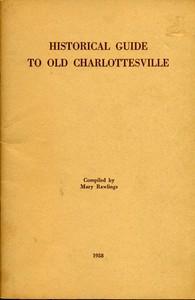Read this ebook for free! No credit card needed, absolutely nothing to pay.
Words: 129943 in 31 pages
This is an ebook sharing website. You can read the uploaded ebooks for free here. No credit cards needed, nothing to pay. If you want to own a digital copy of the ebook, or want to read offline with your favorite ebook-reader, then you can choose to buy and download the ebook.
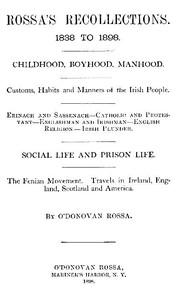

: Rossa's Recollections 1838 to 1898 Childhood boyhood manhood; customs habits and manners of the Irish people; Erinach and Sassenach; Catholic and protestant; Englishman and Irishman; English religion; Irish plunder; social life and prison life; the Fenian
ROSSA'S RECOLLECTIONS.
Sixty Years of an Irishman's Life.
THE CRADLE AND THE WEANING.
In the Old Abbey field of Ross Carbery, County of Cork, is the old Abbey Church of St. Fachtna. Some twenty yards south of the church is the tomb of Father John Power, around which tomb the people gather on St. John's eve, "making rounds" and praying for relief from their bodily infirmities.
On the tombstone it is recorded that Father Power died on the 10th of August, 1831. I was at his funeral; I heard my mother say she was "carrying" me that day. It is recorded on the parish registry that I was baptized on the 10th of September, 1831; that my god-father was Jerrie Shanahan, and my god-mother Margaret O'Donovan. When I grew up to boyhood I knew her as "Aunty Peg." She was the wife of Patrick O'Donovan "Rua," and was the sister of my mother's father, Cornelius O'Driscoll. Jerrie Shanahan's mother was Julia O'Donovan Rossa--my father's uncle's daughter. She is buried in Flatbush, Brooklyn. Her granddaughter Shanahan is the mother of nine or ten children of the Cox family, the shoe manufacturers of Rochester, N. Y., who by "clounas" are connected with the family of ex-Congressman John Quinn of New York, as John Quinn's mother was the daughter of Denis Kane of Ross, whose wife was the sister of John Shanahan. I don't know if John Quinn knows that the Coxes of Rochester are cousins of his; I don't know would he care to know that his mother's first cousin, Jerrie Shanahan is my second cousin, and my god-father. There were forty men of my name and family in my native town when I was a boy; there is not a man or a boy of my name in it now. One woman of the name lives as heritor of the old family tomb in the Old Abbey field.
And that is the story of many another Irishman of the old stock. Families scattered in death as well as in life; a father buried in Ireland, a mother buried in Carolina, America; a brother buried in New York, a brother buried in Pennsylvania, a sister buried in Staten Island. The curse that scattered the Jews is not more destructive than this English curse that scatters the Irish race, living and dead.
This place of my birth, Ross Carbery, is famed in Irish history as the seat of learning in the early centuries. Shrines of St. Fachtna, holy wells and holy places are numerous all around it. Distinction of some kind--special good fortune or special misfortune--belongs to the life of every one born there. It is the birthplace of Maurice J. Power, the right-hand man of ex-President Grover Cleveland, in the city of New York. It is the birthplace of Richard Croker, the right-hand man of the Government of the Tammany Hall Society, in the city of New York.
Of the Fates that hover over my life I have no reason to complain. They have mixed my fortunes; given me a strong constitution, a light heart, and a light pocket, making my struggle for existence active enough to keep the blood in a healthy state of circulation, fortifying me with strength to stand firm under difficulties, and filling my mind with strong hope in the future if I do all that I deem right in the present.
The Maurice J. Power in New York that I speak of is the same family of Powers as the Father John Power at whose tomb the people pray to God for relief from their infirmities. And the belief is that many have obtained relief through their prayers there. I know that I have gone through that Abbey field the day after a St. John's eve, and I have seen, propped up by stones, a pair of crutches that were left there by a man who came into the field on those crutches the previous day. The holy words say, "Faith will move mountains," the whole world is the temple of God, and the pilgrim cripple, full of faith, praying to Him in that Abbey-field, became able to walk away without his crutches, and leave them standing there as monuments of the miracle.
Father Jerrie Molony, the priest of the parish, discountenanced the rush of people to Father Power's tomb every St. John's eve: he spoke against it from the altar on Sundays. All to no use; the people came; came in thousands. Of course, where people congregated in such numbers, abuses began to grow; the votaries of sin came into his parish as well as the votaries of prayer, and very probably the good priest thought it better to stop the gathering altogether than have it made the occasion of shame and scandal.
I will here leap some years ahead, to record my recollection of one St. John's eve that I was in Ross. It was in the year 1858.
James O'Mahony of Bandon wrote to me that he wished to meet me to have a talk over Irish national affairs. He suggested that St. John's eve in Ross would be a good place, as crowds of people would be there, and we would escape any prying notice. We met there that day. We had our talk, and then we walked toward the Abbey field. The blind and the halt and the lame were there, in every path and passage way, appealing for alms--appealing mostly in the Irish language. We stood behind one man who was sitting down, his bare ulcerated legs stretched out from him. His voice was strong, and his language was beautiful. O'Mahony said he never heard or read anything in the Irish language so beautiful. Taking his notebook and pencil to note down the words of the appeal, some traveling companion of the cripple's told him that a man was taking notes, and the cripple turned round and told us to go way. He wouldn't speak any more until we went away.
Free books android app tbrJar TBR JAR Read Free books online gutenberg
More posts by @FreeBooks
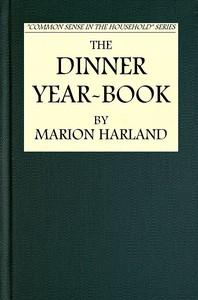

: Mary Jane in New England by Judson Clara Ingram Gooch Thelma Illustrator - New England Description and travel Juvenile fiction
